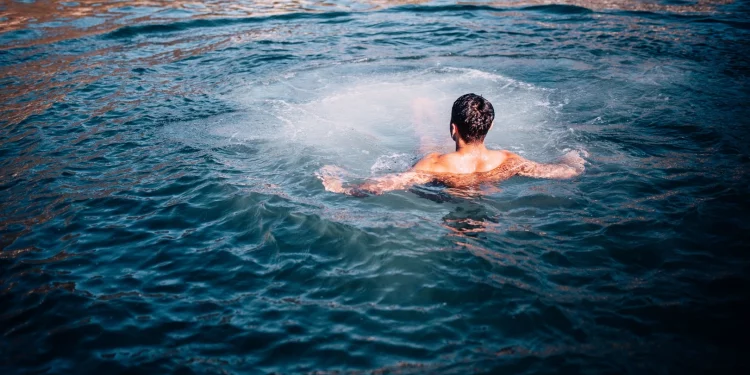Cold water swimming, once a niche activity enjoyed by the most intrepid of swimmers, has surged in popularity as individuals across the globe discover its myriad benefits. This invigorating practice involves swimming in natural bodies of water that are significantly cooler than those typically preferred for recreational swimming. The benefits of cold water immersion extend beyond the initial thrill, offering a range of physical and mental health advantages.
Physical Health Benefits
- Improved Circulation: Cold water swimming stimulates blood flow, forcing the body to circulate blood more efficiently to maintain core temperature. This enhanced circulation can contribute to better heart health and the delivery of nutrients and oxygen throughout the body.
- Boosted Immune System: Regular cold water immersion has been linked to an increase in white blood cell count. This response is the body’s way of fortifying its defense against pathogens, potentially leading to a stronger immune system over time.
- Enhanced Metabolism: The body expends significant energy to generate heat following cold water immersion, thereby increasing metabolic rate. This boost in metabolism can aid in weight management and promote healthier body composition.
- Pain Reduction and Anti-inflammatory Effects: Cold water swimming can act as a natural pain reliever by reducing inflammation and numbing nerve endings. Athletes often use cold water immersion to speed up recovery after intense physical activity due to these effects.
Mental Health Benefits
- Mood Enhancement: Cold water swimming triggers the release of endorphins, known as the body’s natural painkillers and mood elevators. This chemical release can lead to a post-swim high, characterized by feelings of well-being and euphoria.
- Stress Reduction: Immersing in cold water has been shown to lower stress levels. Cold exposure activates the sympathetic nervous system, increases blood levels of beta-endorphin and noradrenaline, and decreases cortisol, thereby reducing stress.
- Improved Mental Resilience: Regularly braving the cold water can enhance mental toughness and resilience. The challenge of cold water swimming helps individuals develop a stronger mindset, which can be beneficial in coping with life’s stresses and challenges.
- Enhanced Focus and Cognitive Function: The shock of cold water immersion can increase alertness, clarity, and focus. The need to breathe deeply and concentrate on overcoming the initial cold shock can improve overall cognitive function, contributing to better concentration and mental performance.
Social and Community Benefits
Cold water swimming often takes place in groups or clubs, offering a sense of community and belonging. The shared experience of facing the cold together can foster strong bonds and provide social support, enhancing the overall enjoyment and benefits of the activity.
Safety Considerations
While cold water swimming offers numerous benefits, it’s important to approach it with caution, especially for beginners. Potential risks include hypothermia, cold water shock, and swimming in unsafe conditions. It’s advisable to:
- Start slowly and gradually acclimate to colder temperatures.
- Always swim with a buddy or in a supervised area.
- Be aware of the symptoms of hypothermia and know when to get out of the water.
- Consult with a healthcare provider before starting, especially if you have underlying health conditions.
Cold-water swimming is a powerful way to invigorate the body, boost mental health, and foster a sense of community. Its benefits are attracting a growing number of enthusiasts willing to brave the chill for the sake of well-being. With the right precautions and respect for the body’s limits, this refreshing activity can be a valuable addition to a holistic health and wellness regimen.










